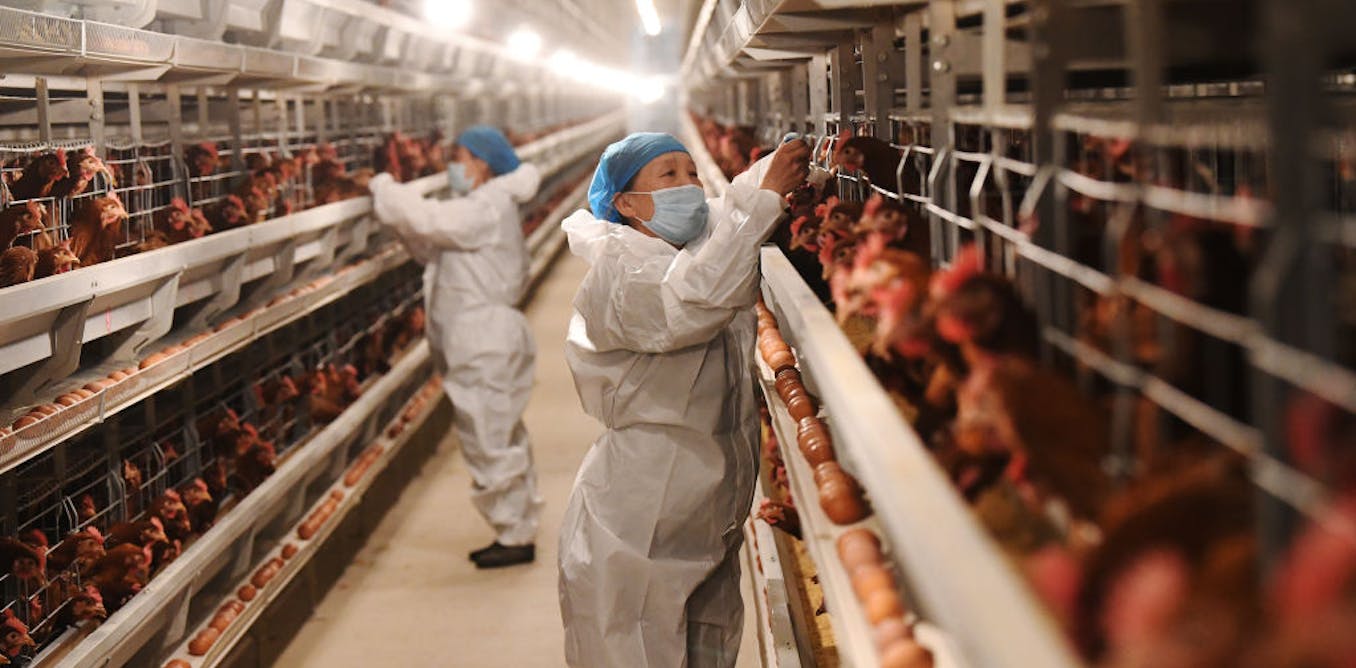WITH presents, decorations, visiting family and a mega meal to cook, Christmas is an expensive time of year for everyone.
But the extra costs of the festive season can push disabled families beyond their financial limits.
7

7
On average, they already face forking out an additional £1,010 a month to have the same standard of living as non-disabled households, the charity Scope estimates.
However, December can leave them on the brink.
Shellie Warner, a mum from Nottingham, knows this all too well.
This year, her son Adonis, known as Donny, will open his presents on Christmas morning just like many other families across the UK.
But while most will be excitedly ripping into brand new toys and clothes, little Donny will have seen all of his before.
After an expensive 2024, Shellie, 27, can’t afford to buy him new gifts, so, just like last year, she is rewrapping his birthday presents, desperately hoping that he’ll have forgotten all about them.
“Donny’s birthday is in November and last year, because he still hadn’t played with a lot of the toys people got for him, we rewrapped them for his Christmas presents and he loved them all over again,” she says.
“Initially I felt that it was a great idea because he would ‘never know’, but as it got closer to the day, I felt like I had failed him.
“Seeing everyone else’s children with their new toys just made me feel awful that I couldn’t give that same joy to my son.
“I imagine it will get worse as he gets older and wants specific things, but we want to teach him that the magic is in giving thoughtful gifts rather than receiving expensive ones, because there’s no way we can keep up each year with the costs we have.
“It’s heartbreaking to feel that you have let your kids down, but honestly, he just liked the crinkly paper last year and myself and my husband skipped Christmas presents for each other again to save as much as we could.”
Two-year-old Donny has Down’s syndrome and total colonic Hirschsprung’s disease, which occurs when certain nerve cells that are normally present in the wall of the intestine don’t form properly during foetal development.
The condition required him to have an ileostomy – a surgically created opening in the abdomen that allows waste to exit the body through the small intestine instead of the anus – as his entire large bowel and part of his small bowel is affected.
This led to the formation of a stoma for Donny, which significantly impacted Shellie and her family’s daily life – including their finances.
He needs constant medical supplies, which don’t come cheap, and Shellie says she must also make sure she always has an emergency fund to cover expenses like hospital parking.
This year, she estimates she has spent more than £400 on hospital parking alone.
We tried to save throughout the year so we could treat our son to a nice present, but with all the extra costs we have incurred there isn’t much left
Shellie Warner
“We’ve been to A&E more than 40 times in the last year, and parking isn’t cheap so those costs really add up,” the mum says.
“We buy extra nappies and wipes because we have to empty the output from his stoma every few hours into his nappy.
“We go through a lot of those and will do until he is potty trained, which could be a couple of years yet.
“I’ve had to buy gauze, stain remover, gloves, and extra stuff for his stoma out of our own money because it either isn’t covered by the NHS or they had low supply that month.
“Most of the items in his stoma care are easy to get hold of, but sometimes we have to buy them online when the NHS supply is low or ask at the hospital for their stock.
“For a month of supplies, it would probably cost about £100 to £150.”
The family’s utility bills have also shot up.

7

7

7
“We use a lot more electricity and gas now than we used to because we need to have the hot water on pretty much all the time to be able to bathe him if he has leaks from his bag,” Shellie says.
“I have been keeping flasks of warm water for emergencies to cut costs.
“We spend a fortune on washing powder and stain remover because I put on a wash every single day that he leaks.
“We have had to purchase several new clothes for Donny because they have been stained too many times to salvage.”
But the single most expensive item is Donny’s £360 specialist buggy which is critical for ensuring he can move around safely and comfortably.
In total, Shellie estimates these additional costs, which also include nutritional replacement powders, physio equipment and education support, amount to more than £3,500 a year.
This has created a significant financial burden for Shellie and her family.
HOPING FOR THE BEST
Despite her husband covering the household bills, Shellie’s earnings working for a local charity and her benefits are entirely devoted to Donny’s care.
This leaves little room for savings or additional expenses, like treating her boy at Christmas.
“I think every parent worries around Christmas time,” she says.
“We will just need to hope for the best and try to save as much as we can without taking away from the daily fun he has, because Christmas is just one day in the year and I’d rather he be happy and comfortable all year round and be able to get him what he needs when he needs it.”
Donny’s first Christmas was spent in hospital with a dangerous bowel infection and obstruction – something Shellie hopes won’t be repeated this year.
“We will never get that moment back so we just try to make the most of each day as it comes and can’t always make plans too far away from home or a hospital, just in case,” she says.
“We tried to save throughout the year this time so we could treat him to a nice present, but with the number of times he has been in hospital and all the extra costs we have incurred, we have had to dip into our savings so there isn’t much left for Christmas presents now.”
‘IT’S ALWAYS UPSETTING AT CHRISTMAS’

7

7
Lucie Gregory, 45, and her partner John, also from Nottingham, are facing a similarly uncertain Christmas.
Their son Matthew, 10, has a rare brain malformation called nodular heterotopia and requires round-the-clock care.
His condition, which Lucie says “presents a bit like cerebral palsy”, affects all of his limbs.
Matthew is unable to walk so uses a £7,000 wheelchair and he is non-verbal, though he can say the word “bye”.
The family, who had to move into an accessible bungalow in 2018, spend £73 every fortnight for private physiotherapy, as they haven’t been able to access this on the NHS.
Thankfully, the local council helped pay for doors in their home to be widened, as well as a wet room and an entrance ramp, but they are self-funding a £100,000 extension.
“Most homes aren’t built to accommodate a person in a wheelchair, so we have to build our own – we can’t just live in any house or flat,” Lucie, who works part-time in a school office, says.
Life costs more when you’re disabled
SCOPE’S Disability Price Tag research measures the additional money a disabled household would need to achieve the same standard of living as a non-disabled household.
It includes all of the items and services that a disabled household might need, but goes without because they are too expensive.
The 2024 report found:
- Disabled households with at least one disabled adult or child face extra costs each month.
- On average, disabled households need an additional £1,010 a month to have the same standard of living as non-disabled households.
- This extra cost of disability is equivalent to 67 per cent of household income after housing costs.
- This figure has risen over time, and without intervention it is likely to continue to increase.
- For households with two disabled adults and at least two children, these average extra costs increase to £1,248 a month.
They have also spent around £700 on several week-long intensive physiotherapy courses during the school holidays, plus travel and accommodation as none are held in their area.
Without these sessions, Lucie says her son wouldn’t be able to sit unaided or take steps without a walking frame.
But they obviously come at a cost. These, on top of things like toilet chairs, sleep sacks, drinking beakers, specialist shoes, sensory toys and physio equipment, mean their annual outgoings can be around £2,500, and sometimes as much as £10,000.
Christmas is especially difficult.
“Our family all live far away and we can’t stay at theirs as their homes aren’t accessible, so we end up hosting every year,” Lucie, who receives Disability Living Allowance and Carer’s Allowance, says.
“This obviously costs a lot in food, heating and electricity.
“It’s always hard work looking after Matthew as there aren’t many breaks.
“And Christmas always ends up being extra hard as we have to plan it all and look after others, cooking and cleaning and washing extra bedding and towels and so on, while also changing Matthew’s nappies, showering him, feeding him and putting him to bed.
“It would be nice to be able to go to someone else’s house and try to relax a bit, but it just makes life even harder.”
‘OVERWHELMING’
Finding gifts for Matthew is also a challenge because he can’t play board games or watch films like other children.
Lucie and John also struggle to afford to buy him the things he can enjoy, as John’s salary takes them over the threshold for additional welfare support.
“It’s always upsetting at Christmas,” Lucie says.
“He’s a 10-year-old boy who should be writing his list to Santa and playing with all his new things on Christmas morning.
“The whole of Christmas can be stressful and with the additional financial cost on top of everything else we have to pay for throughout the year, it’s quite overwhelming.”
Both Shellie and Lucie are supporting Scope’s fundraising appeal, highlighting the hidden cost of Christmas for disabled families across the UK.
The charity can provide free, practical advice and reassurance when it’s needed most.
For more information, visit scope.org.uk/giving/christmashiddencosts
Are you missing out on benefits?
YOU can use a benefits calculator to help check that you are not missing out on money you are entitled to
Charity Turn2Us’ benefits calculator works out what you could get.
Entitledto’s free calculator determines whether you qualify for various benefits, tax credit and Universal Credit.
MoneySavingExpert.com and charity StepChange both have benefits tools powered by Entitledto’s data.
You can use Policy in Practice’s calculator to determine which benefits you could receive and how much cash you’ll have left over each month after paying for housing costs.
Your exact entitlement will only be clear when you make a claim, but calculators can indicate what you might be eligible for.




